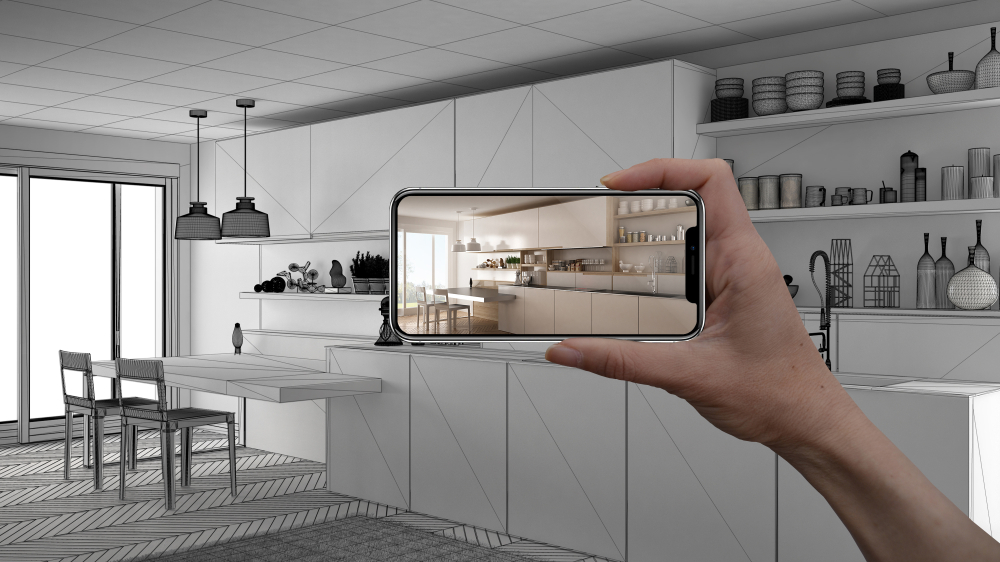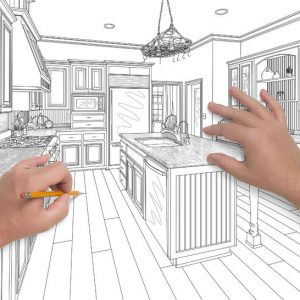 Steve Hoffacker LLC, and the National Association of Home Builders are AOTA Approved Providers of professional development. Course approval ID#0000. This distance learning-interactive activity is offered at .6 CEUs, introductory educational level for Category One, Occupational Therapy Service Delivery. The assignment of AOTA CEUs does not imply endorsement of specific course content, products, or clinical procedures by AOTA.
Steve Hoffacker LLC, and the National Association of Home Builders are AOTA Approved Providers of professional development. Course approval ID#0000. This distance learning-interactive activity is offered at .6 CEUs, introductory educational level for Category One, Occupational Therapy Service Delivery. The assignment of AOTA CEUs does not imply endorsement of specific course content, products, or clinical procedures by AOTA.- Comfort, convenience, safety, and accessibility – regardless of age, stature, or ability – are the hallmarks of inclusive design, otherwise known as universal or barrier-free design.
- Occupational and physical therapists, interior designers, kitchen and bath designers, building materials designers and manufacturers, residential equipment suppliers, home builders, new home salespeople, real estate agents, remodelers, renovators, durable medical equipment suppliers, trade contractors, home decor and furnishings, case managers, consumers, and others interested in creating accessible, barrier-free living spaces will benefit from the creative design concepts and practices presented to focus on developing effective solutions for many common elements found in our housing stock.
- The Certified Aging In Place Specialist (CAPS) courses (CAPS I, CAPS II, CAPS III) are not a pre-requisite for taking the Universal Design Essentials, but CAPS graduates will benefit by expanding into the broader spectrum of universal design that offers a much wider target audience and a broader range of solutions.
- The content covered in the CAPS classes is not duplicated in the Universal Design Essentials course so the background of the CAPS classes would be quite beneficial in understanding the universal design paradigm.
- Participants will be able to understand the designs, regardless of budget, can be incorporated into either new or existing housing to accommodate the widest ranges of physical needs and abilities and be both functional and attractive.
- Universal design is an expression of an inclusive concept that addresses and allows for essentially anyone or any ability to function well within a residential space.
- Many real-world examples are explored and evaluated.
- A large pdf reference document is included.
- CE (6-hours) credits are available for AIA, AIBD, AOTA, APTA, ASID, NKBA and others.

Connecting With Clients & Strategic Partners
- This is a one-day, 6-credit hour, standalone class that complements but does not replace or suffice for the CAPS curriculum.
- It is an elective class that provides additional insight into how to equip or modify a home to accommodate the needs of fulltime occupants as well as occasional visitors.
- Universal Design Essentials is a both an overview and examination of residential design strategies to enable a home (existing or new construction) to appeal to the needs and abilities of nearly anyone, without restriction or additional considerations.
- CE (6-hours) credits are available for AIA, AIBD, AOTA, APTA, ASID, NKBA and others.
$285.00 – $295.00
In registering for this online class, I agree that Steve Hoffacker may record, take occasional screen shots, or use verbal or written comments I may provide to help document and share experiences with others interested in the classes. I agree to be added to his email contact list and to receive emails from him.
Steve Hoffacker intends to conduct the classes as scheduled, but when forces beyond his control intervene, he reserves the right to reschedule those classes. Anyone may request to move their registration to another date without penalty, but there are no refunds provided.
Steve Hoffacker intends to conduct the classes as scheduled, but when forces beyond his control intervene, he reserves the right to reschedule those classes. Anyone may request to move their registration to another date without penalty, but there are no refunds provided.




